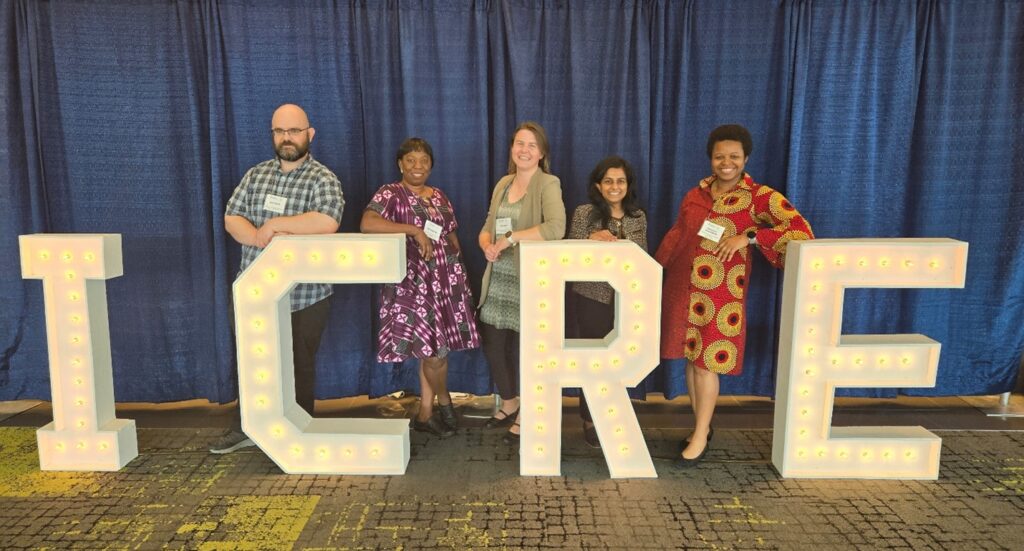PHPM Program Overview
PHPM and PHPM-FM Training Streams
The NOSM U PHPM Program offers training through two separate streams: PHPM-FM in Sudbury and PHPM in Sault Ste. Marie. Residents in the Sudbury PHPM-FM training stream complete two years of clinical training with the NOSM U Family Medicine Residency program, leading to certification with the College of Family Physicians. Residents in the Sault Ste. Marie PHPM training stream complete at least one year of clinical training specifically tailored to PHPM practice, permitting residents to have additional elective opportunities and expanded options for graduate training. Both streams lead to certification with the Royal College of Physicians and Surgeons of Canada, and graduates of both streams are well-prepared for a range of PHPM career choices, including clinical practice providing direct patient care.
Stages of Training
Transition to PHPM
Right from the start of the NOSM U PHPM Program, our specialty is the focus of your training. The first four blocks of both the PHPM and PHPM-FM stream are dedicated to orienting residents to the program, NOSM University, residency, and the specialty of PHPM, and include rotations in Public Health and Family Medicine.
Foundations of PHPM
At this stage of training, residents are introduced to the clinical and academic knowledge and skills that form the foundation of PHPM practice, such as the clinical management of communicable diseases or critical appraisal of research. This stage includes clinical rotations as well as a minimum of two semesters of graduate studies. Most residents choose to complete a Master of Public Health during their training. Residents with previous graduate training may be credited, resulting in additional elective time or a reduction in training time. The length and rotations included in the Foundations stage differ according to training stream.
Core PHPM training
This stage of training focuses on the six core functions of public health: health protection, health surveillance, disease and injury prevention, population health assessment, health promotion, and emergency preparedness and response. Residents in both the PHPM-FM and PHPM streams complete core rotations in:
- Communicable Disease Control
- Environmental Health
- Health Policy and Planning
- Health Promotion, Chronic Disease Prevention, and Injury Prevention
Transition to independent PHPM practice
In the final year of residency, NOSM U PHPM residents consolidate their skills in a Leadership and Management rotation, taking on a leadership role equivalent to an acting associate medical officer of health. This stage focuses on preparing residents for independent practice, with significant administrative and professional responsibilities.
PHPM-FM Sudbury & PHPM SSM Stream Comparison
PHPM-FM Sudbury Stream
At least 24 months of clinical rotations and academic training with the NOSM University Family Medicine Program, including family medicine, surgery, psychiatry, obstetrics, and pediatrics. See the NOSM University Family Medicine Program webpage for more details. PHPM-FM residents are required to complete their FM internal medicine selective in infectious disease.
In PGY3, after Family Medicine training:
- Microbiology
- Clinical public health
Up to 13 blocks of graduate studies
PHPM Sault Ste. Marie Stream
At least 12 months of clinical rotations
- Addictions medicine
- Clinical public health
- Emergency medicine
- Infectious disease
- Internal medicine
- Microbiology
- Perinatal and child health
- 2 blocks electives
Longitudinal training in PGY1:
- Monthly immunization clinics
- In partnership with the University of Alberta, PHPM residents complete Part A of the Foundation Course in Occupational Medicine
Up to 26 blocks of graduate studies
Longitudinal academic teaching
NOSM U PHPM residents participate in weekly academic half-days, regular academic full days, and biannual in-person learning events, guided by a comprehensive and innovative academic curriculum. The curriculum includes case-based learning, tabletop exercises, media training, and simulations. The NOSM U PHPM Indigenous and Francophone health curriculum has been recognized by the Royal College of Physicians and Surgeons of Canada as a leading educational practice.
A typical academic-half day comprises an informal facilitated discussion, case-based rounds, and a didactic teaching session. PHPM residents attend the whole PHPM academic half-day for their entire residency. PHPM-FM residents attend part of the PHPM academic half-day and the whole FM academic half-day while completing the Family Medicine Program, and then attend the whole PHPM academic half-day after their training with the Family Medicine Program is complete.
Scholarly work
Residents engage in scholarly work throughout their five years of residency, supported by the PHPM program research tutor. All residents complete a scholarly project, such as original qualitative or quantitative research, comprehensive or systematic literature reviews, continuous quality improvement initiatives, or program evaluations with measurement. In addition to their graduate training, residents also have protected time for scholarly work through research electives. Residents in the PHPM-FM stream also complete a separate family medicine research project.
Our residents and faculty publish regularly in peer-reviewed journals.



